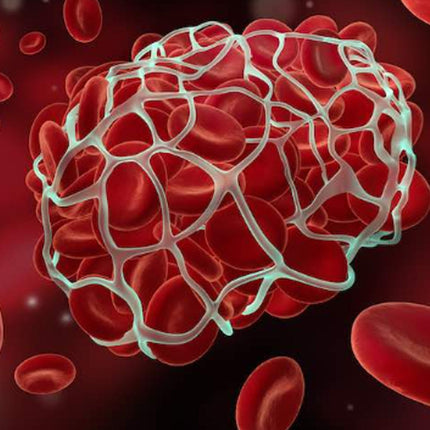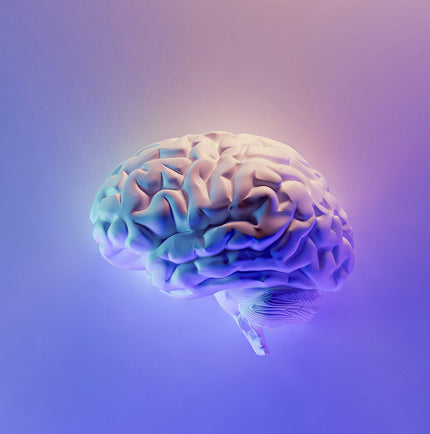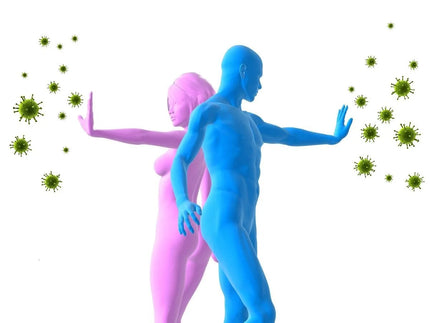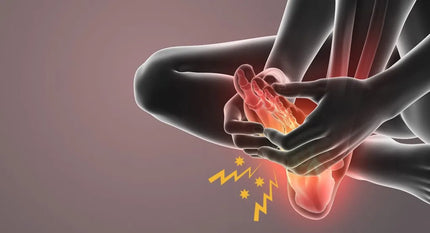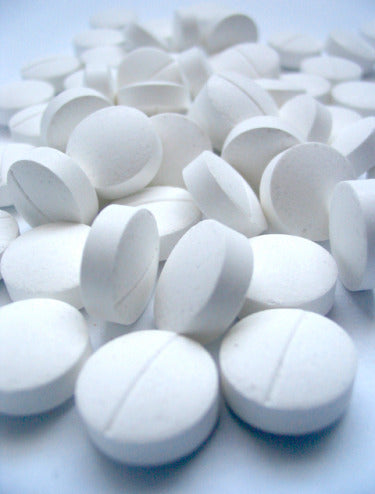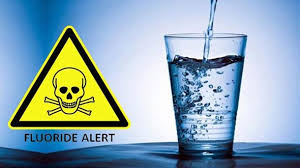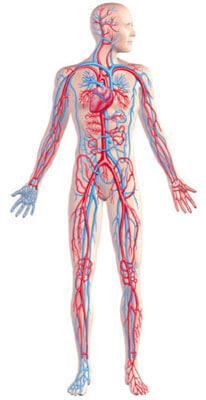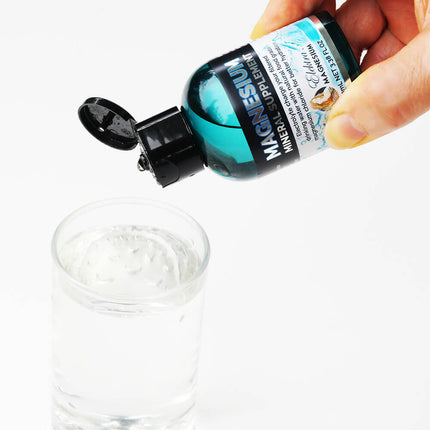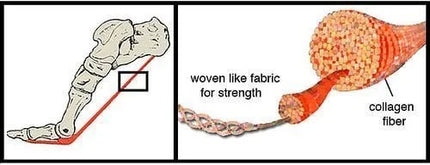Tax included and shipping calculated at checkout
Have you noticed yet that magnesium supplementation has varying effects from individual to individual? We know that transdermal magnesium is a far superior magnesium delivery system compared to oral supplementation because it can bypass all the issues to do with digestion and gut absorption.
However, even with transdermal absorption, one T-shirt does not fit all!

There is a great variation of magnesium status in the population, however the overall deficiency levels are growing in line with growth in chronic stress exposures. It’s not so much a question of whether we are magnesium deficient these days, but more a question of by what amount.
As magnesium has so many roles in the body, its deficiency can present in a broad variety of ways in different people depending on their genetics. Scientist and magnesium researcher Mildred Seeling said in her book The Magnesium Factor, that nutritional studies found;
“Some developed neuromuscular symptoms, and others developed cardiovascular changes. Loss of appetite, nausea, apathy and persistent fatigue or weakness occurred in some, while personality changes, muscle spasms or cramps, pain or tremor occurred in others…. Some people develop high blood pressure with a magnesium deficit, others do not. In some people total cholesterol levels rise while ‘good cholesterol’ falls, but this doesn’t happen in everyone. Some people get type II diabetes or metabolic syndrome X, while others do not. Some have angina or heart arrhythmias and others do not. Some experience no symptoms at all until there is a heart attack or sudden, unexpected cardiac death.”
About 10% of the population have genes which cause excessive magnesium loss and/or impaired ability to digest and absorb magnesium from diet. Genetic variations in intestinal and kidney function greatly influence magnesium metabolism. There are those that just tend to be low in magnesium despite consuming similar amounts of magnesium as others of same age and sex. Mildred Seeling confirms that fundamentally we see different presentations because;
“There are genetic differences in how well we absorb the magnesium from food we eat and from the water we drink, in how well we retain it, and in how we distribute it to the cells of different tissues in our bodies.”
Much of this variation results from inability to digest food properly, such as in the case of low stomach acid production, which is needed to fully digest proteins and break them down to individual amino acids so that the body can re-assemble them into its own proteins. High protein foods tend to store a good amount of magnesium such as meat, fish, beans, nuts and seeds, however you need adequate stomach acid production to be able to digest them well and to extract nutrients, including magnesium. Such people will also trend towards a low blood pressure and hypothyroid condition, sometimes also including symptoms of chronic fatigue, fibromyalgia, migraine headaches, brain fog, leaky gut syndrome or an excessively oestrogenic presentation and over-sensitivity.
They would generally favour a vegetarian diet or one with low meat content and cooked slow and low so it’s very tender and easier to digest. The GAPS (Gut and Psychology Syndrome) diet with daily fermented foods is highly recommended for this group.
Others with a better genetic ability to be able to absorb and retain magnesium can still become severely depleted in magnesium due to excessive stresses. According to Mildred Seeling:
“This can occur under conditions of illness, such as those that cause chronic diarrhea, or as a result of treatment with diuretics or other drugs that cause magnesium loss, or as a result of severe stress or too low magnesium intake. If a negative balance persists, body stores of magnesium are mobilized and a sub-clinical (not apparent by observable signs or symptoms) magnesium deficiency can develop. If the negative balance continues for a long time, the body draws upon functional magnesium from the liver and the muscles – even heart muscle – and signs of magnesium deficiency can become detectable.”
Stresses can include psychological pressure, shift work and lack of sleep, chemical exposures, electro-magnetic fields and dirty electricity, drugs, alcohol excess, over work and excessive exercise, extreme heat or cold exposure, loud and chronic industrial noises, traumas and highly stressful events such as military battle, car accident, surgery or burns.
Children can also come into the world with magnesium deficiency if the mother was deficient because a baby can take as much as 10% of the mothers own minerals out of her body during pregnancy. See article Pregnancy and Magnesium.
We can also be exposed to excessive calcium in the diet (dairy, calcium supplements) which can block magnesium metabolism. Magnesium is actually the master mineral and will control how well calcium is used in the body. In other words, when you have sufficient magnesium you can avoid symptoms of free calcium settling in the soft tissue and joints causing hardening in all the wrong places. A plentiful supply of magnesium helps you to stay fluid and flexible.
In addition to that, magnesium and fluoride are antagonists. When they find each other they bind and form magnesium fluoride (sellaite) which becomes insoluble and unusable by cells. If the fluoride is more, then it will steal the little bit of magnesium you do have. Ideally you would eliminate or minimise exposure to fluoride (including drinking water) and increase magnesium uptake so magnesium can become our cell protector. In this case they will still bind, but only some magnesium will be sacrificed this way and excreted, leaving a plentiful supply for the other magnesium jobs. Symptoms of fluoride toxicity are the same as magnesium deficiency.
Heavy metals such as mercury and lead can also block magnesium. The good news is that as you lift magnesium stores in your tissue cells it supports the enzyme activity of detoxification enzymes such as gluthathione and superoxide dismutase. This may take a while as it's hard to detox too fast. Extra detoxification methods including vegetable juicing, massage and infrared saunas can help the process along. But make sure to drink plenty of water to facilitate the inside rinsing process! Eventually over time you can excrete what should not be in the body and feel lighter and more energetic.
Magnesium supports the gut digestive bacteria and immune system, as well as the whole electrical and nervous system. The more optimal your levels of magnesium become, the calmer and more focused you feel, the better your metabolism becomes and the more resistant you become to infections, inflammation and disease. Your collagen structures also strengthen which means skin, hair, nails, bones, teeth, organs, and vascular system, that is, all the fibres that hold us together regain membrane integrity. We just start to feel better and better.
According to Mildred Seeling,
“Most of us need between 300 and 650 milligrams of magnesium daily to maintain magnesium equilibrium or to store enough for repair or emergency (stress) needs.”
However this is only a guide. Our individual needs will fluctuate from day to day. An athlete or shift worker can churn through more than 1,000mg of magnesium on a demanding day. How do we work out what we need?
The best way is to let Nature take its course by eating a healthy fresh food diet, avoiding processed junk foods and chemicals, adopting a GAPS diet if you have leaky gut symptoms, and using transdermal magnesium absorption to supplement what diet cannot provide (which is a lot!). Transdermal magnesium may be in the form of a swim in the ocean or a magnesium footsoak/ bath. It may also be the use of Elektra Magnesium Cream (skin care) or Elektra Magnesium Oil Spritz (muscle relaxation), or both for optimal magnesium uptake. The important thing is that you apply magnesium transdermally every day because your body is using up magnesium every day – just like water. Use as much as you like and as much is needed to feel better.
Speaking of water, to make an hydrating beautiful tasting mineral alkaline drinking water use properly filtered water and add back in magnesium electrolytes with a pinch of Elektra Magnesium Chloride Flakes (about 5 flakes or half of one gram per litre). Make sure to only use 'food grade' for drinking water. Elektra Magnesium Chloride flakes are food grade and tested in Australia. This will probably not supply all your magnesium needs by itself, but it will improve the hydration ability of the water.
 Good Hydration with Mineral Water
Good Hydration with Mineral Water
Cells love it and take up more water, which assists better flushing of wastes. And it’s easier to drink more water without peeing so often! This is because the water gets better access to tissue cells as it moves through, rather than mostly passing straight through the digestive system and out.
You need magnesium to help hold the water inside cells. Magnesium is integral in maintaining the charge and integrity of cell membranes. Cell membranes are held together by a phospholipid bilayer and magnesium ions. When magnesium gets too low, cells walls become leaky and also start to lose too much water. So it’s easy to get dehydrated when magnesium gets low.
The beautiful thing about transdermal magnesium absorption is that it is perfectly natural.
 Transdermal Magnesium
Transdermal Magnesium
We are just serving up nutrition (food) which happens to be easily absorbed into the epidermal layer of the skin, where it stays in this reservoir as the blood vessels from the dermis underneath gradually absorb the magnesium over time. Eventually it all goes in, but at the body’s natural pace. If you are very depleted the magnesium will go in faster. The body is self-regulating this way. It is a passive absorption method and you can’t overdose because you are not ‘pushing’ anything into the body. You are only ‘offering’ a smorgasboard of nutrients. By massaging Elektra Magnesium into muscles you can help drive magnesium ions deeper into muscle tissue as this helps the blood circulation and relaxation effect. No need to wait for digestion. Just massage in or enjoy a magnesium soak and feel the calmness move through you right away.

Elektra Magnesium feels sooooo good!
By Sandy Sanderson © 2016 www.elektramagnesium.com.au








